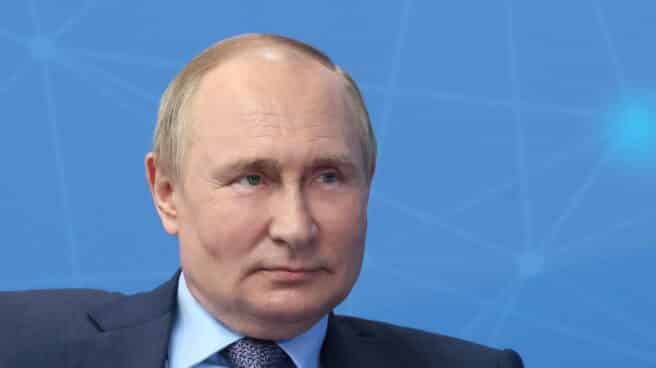

Vladimir Putin this Thursday in a conversation with entrepreneurs.
Russian President Vladimir Putin made it clear on Thursday that Russia’s goal is to expand and eventually retain territories it historically considers its own. In a conversation with entrepreneurs marking the 350th birthday of Peter the Great, one of the most prominent rulers in history, Putin went so far as to compare himself to a Romanov czar.
Putin specifically mentioned the war of Peter I against Sweden in the 18th century, after which the Russian Empire seized the territories of the Baltic coast and established its capital in St. Petersburg. But he also took control of what is now Estonia, Latvia and Lithuania, three countries that feel particularly threatened by Putin’s expansionism.
“You have the impression that by fighting Sweden, Pedro I won something. But he didn’t conquer anything, he won it back,” Putin said in a speech in which he stressed that at the time “no one in Europe considered St. Petersburg to be Russian territory.”
“We also have an obligation to recover and strengthen ourselves,” Putin later added, clearly referring to the current Russian offensive in Ukraine, opening the door to not just stay there: “Yes, there were times in the history of our country when we were forced to return, but only to to recuperate and move forward again.”
New sanctions against Putin
At the same time, Ukrainian President Volodymyr Zelensky signed a decree in recent hours imposing economic sanctions on a number of senior Kremlin officials, including his Russian counterpart Vladimir Putin.
By signing this decree, Zelensky puts into effect the decision of the National Defense and Security Council of Ukraine to impose personal sanctions not only on President Putin, but also on his other key partners in the Kremlin, such as Foreign Minister Sergei Lavrov.
The sanctions include freezing assets in Ukraine and commercial transactions, as well as a ban on the transfer of capital outside the country, which President Putin ordered to be invaded on February 24.
In addition to Putin and Lavrov, these sanctions affected about thirty other people. This is Kremlin spokesman Dmitry Peskov; Russian Prime Minister Mikhail Mishustin; Protection, Sergei Shoigu; Deputy Prime Ministers Andrey Belousov and Tatyana Golikova; as well as Secretary of the Security Council Nikolai Patrushev and others.
Source: El Independiente